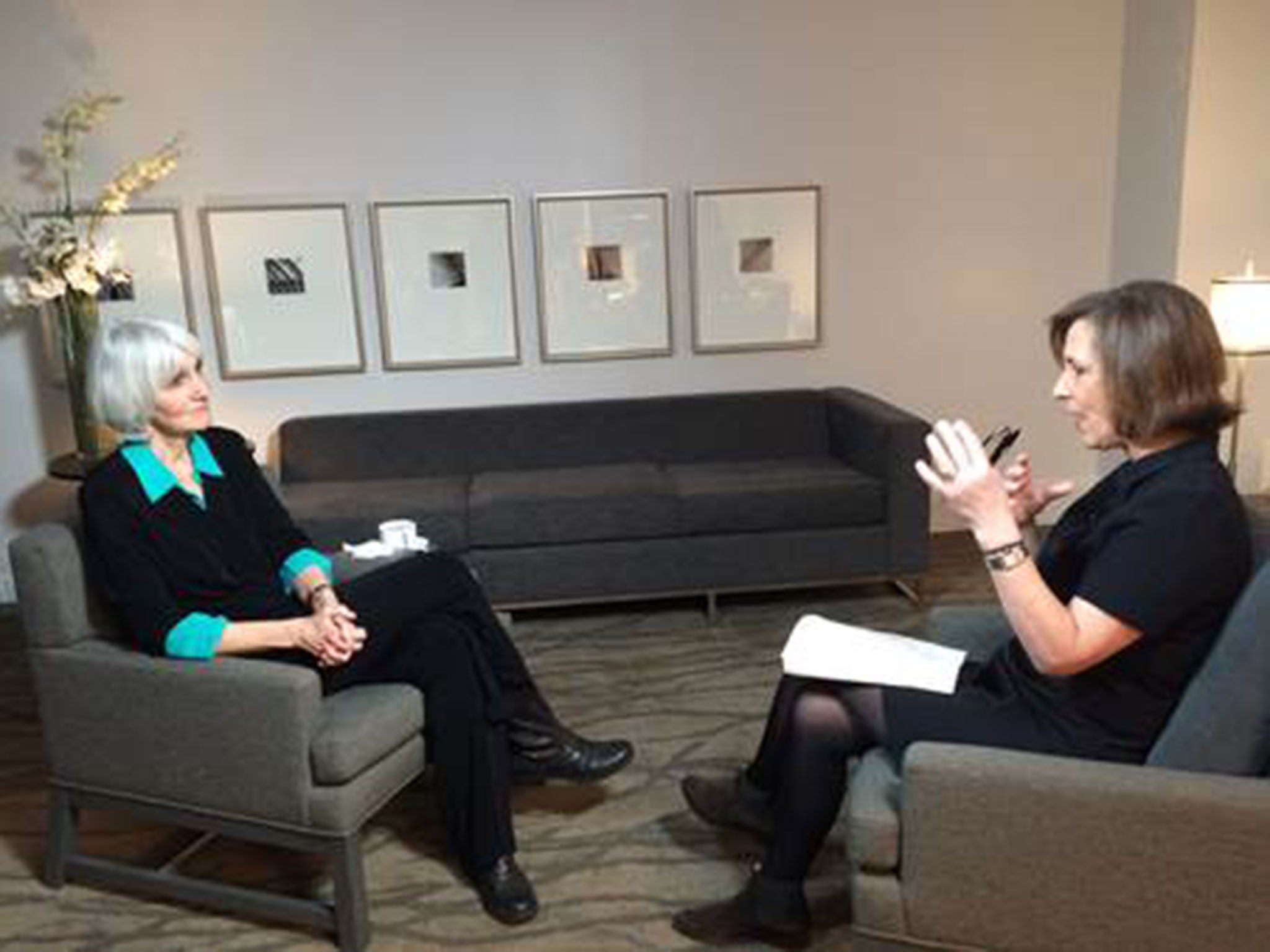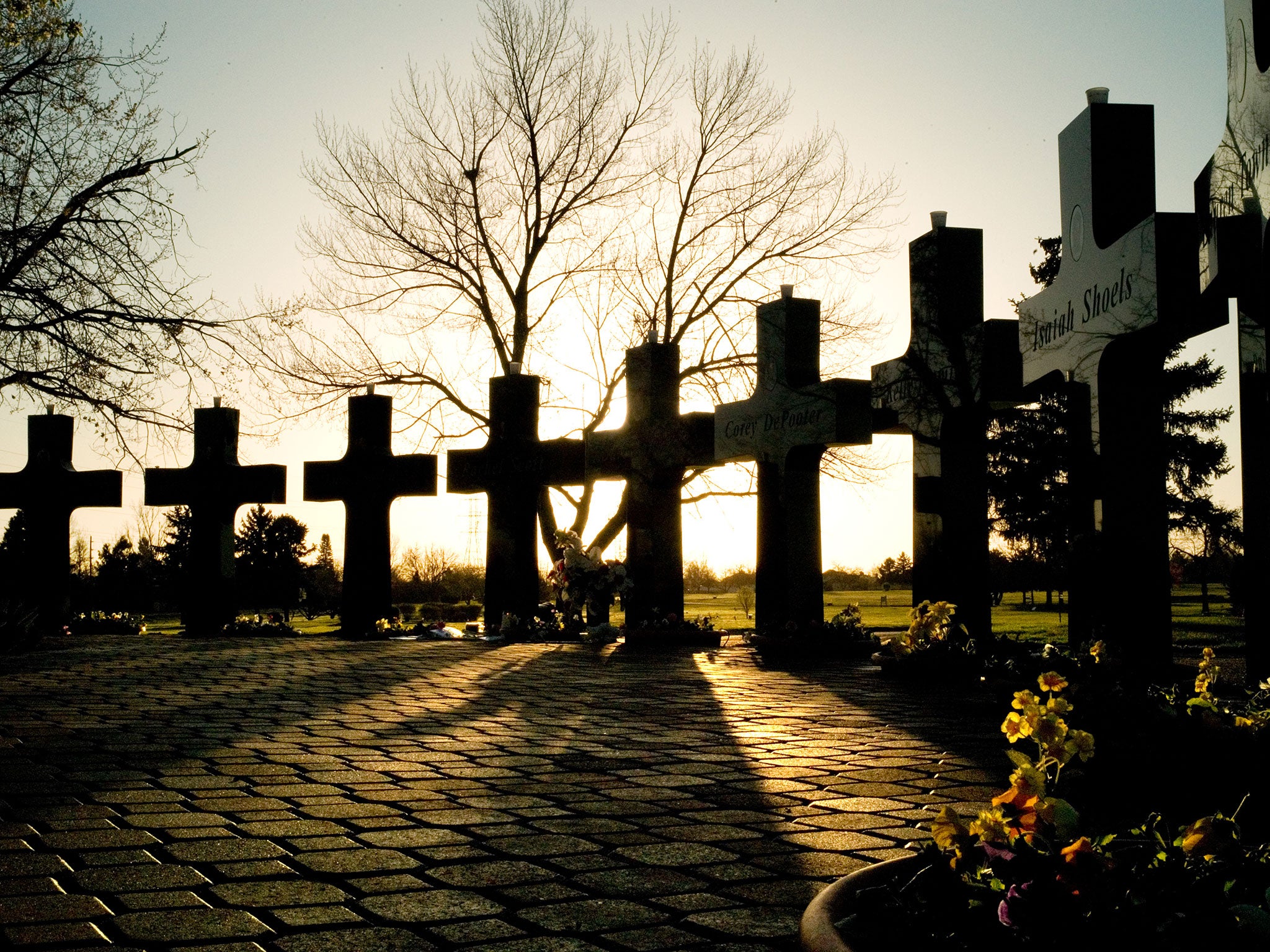Dylan Klebold's mother on the moment her son decided to commit mass murder at Columbine High School
The BBC's Kirsty Wark sits down with Sue Klebold, who has broken her silence on that tragic day after 17 years

For 17 years Sue Klebold has kept silent about her son’s role as one of the two Columbine killers. That was until last week, when I sat down and spoke to her for Newsnight. We talked about her visits to the Columbine memorial, and her profound regret as a parent.
I met Sue in New York, but first I travelled to Colorado to visit the beautiful memorial to the 12 students and one teacher who Dylan Klebold and Eric Harris killed on 20 April 1999 as they attempted to blow up the school.
Since then Columbine has become a short hand for school killings and the awful inspiration for such tragedies as Sandy Hook and Virginia Tech. The memorial, hewn in the red sandstone of Jefferson County, sits in a sheltered spot in the shadow of the Rocky Mountains. One inscription reads, “The hardest part to understand was kids killing kids.” Sue broke down as she told me about her visits to the memorial. “What I do is I sit there and in my head I talk to the kids and to the teacher who is there, without parents, lawyers, community, I just want them to know I am thinking of them. And I will always think of them.”
Sue is a quietly spoken, surprisingly open woman, who doesn’t flinch at hard questions raised by A Mother’s Reckoning, the book she is about to release about her experience. “I wrote it for many reasons and I do believe atonement was part of that. I felt I needed to do something. And I felt that by sharing this story, it might help somebody and it might give them an opportunity to view their own families, their own children differently, and see things in a way that I was not able to see.”
Describing the morning of the massacre she says that she woke up very early when it was still dark and heard Dylan thundering down the stairs past her bedroom. It was unusual, she says, because Dylan was not an early riser. “I couldn’t see him but all I heard him say was “Bye”, and then he slammed the door and left.”

His harsh tone made Tom and Sue Klebold uneasy and they vowed to talk to him that night, but by then he and Eric Harris were dead by their own hands after a cold-blooded killing spree which had been months and months in the preparation.
She told me she was in extreme denial about Dylan’s equal role in the killings until, six months after, they learned of the existence of the so-called “basement tapes”, videos of hate filled racist foul mouthed rants by the two killers brandishing their arsenal and saying goodbye to the world.
She was shattered. “Some of it was shot in an upstairs bedroom, apparently one time when Eric was spending the night….it was a collection of the two of them talking about what they were going to do and being horribly violent and hateful…when I saw that I actually stood up. I thought I was going to be ill.”
A year after that, the police handed the family papers and journals in which Dylan repeatedly expresses his desire to die. Neither parent knew that for two years before the killing their son had been suicidal. She writes that she wishes she had listened more and lectured less. I asked her what she had meant by that. “I think that as parents we want to fix it when our kids talk to us. We want to tell them what you’re feeling isn’t a real feeling…No of course you’re not this way and of course you’re loved. And I, in all the years since I lost Dylan, I wish I had just said, you feel this way. Tell me about it some more.”
Sue made only one stipulation before the interview, that we would not show the CCTV pictures of Dylan and Eric in the school during the massacre for fear of copycat attacks.
In the years after the tragedy she wrote to each of the victims’ families, and received several replies. “One father did write back to us about a year later which I was extremely grateful for and wanted to meet us and it was profoundly comforting for me and meant so much to me.”
The Klebold’s marriage could not withstand the trauma and guilt of Columbine, and the grief of their own son’s death. Sue has since also had breast cancer, something she waved away in the interview as, “a diversion” determined not to elicit sympathy. But in her eyes I could see a deep sadness.
“The suicide aspect of this is one of the things that makes it difficult… you feel that the other person didn’t love you or that they rejected you. Or that you should have been able to do something to stop it. So the guilt you carry is very complex and strong […] I don’t care how many years of therapy I’ve had. I don’t care how many books I’ve read about this issue. There is always part of me that will feel guilty about not being able to stop this.”
The interview with Sue Klebold can be seen tonight at 10:30pm on Newsnight, BBC Two
Join our commenting forum
Join thought-provoking conversations, follow other Independent readers and see their replies
Comments
Bookmark popover
Removed from bookmarks